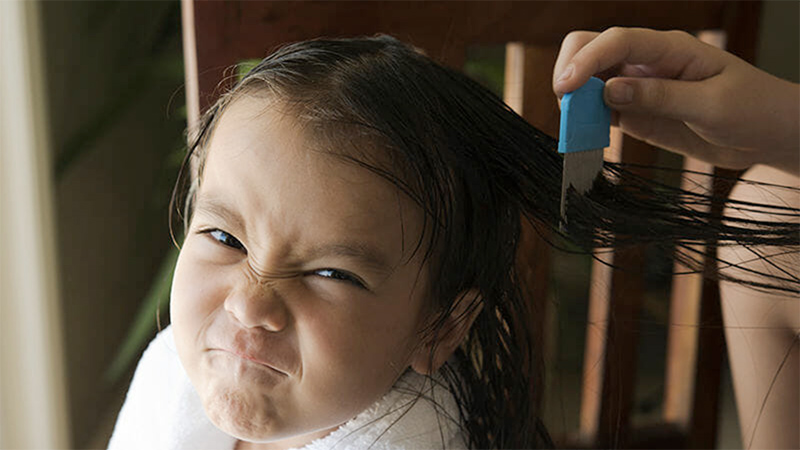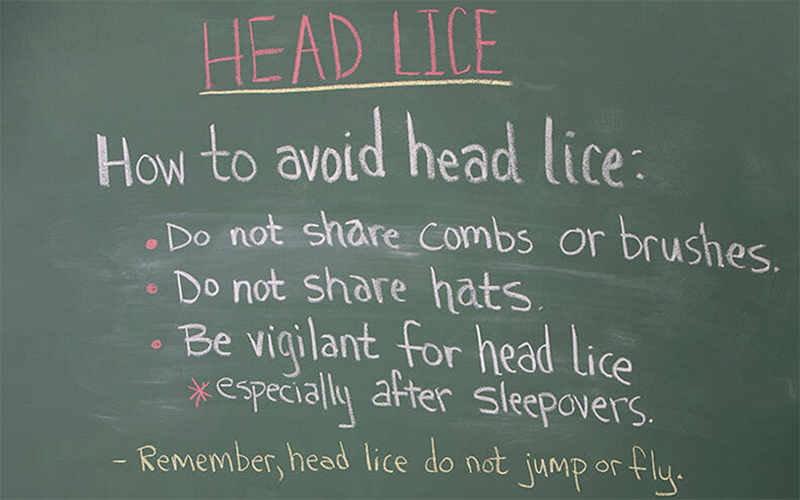Head Lice in Children: What You Should Know!
Posted by admin on
A bout of head lice can be a minor nightmare for a family, spreading to every member in days, and often quite difficult to treat. Common among children aged three to 10 years, head lice are six-legged insects – about the size of a sesame seed – that live on the scalp and neck, feeding on human blood. While head lice are kind of gross (and spotting a tiny, moving speck on a child’s head is enough to send any parent into a panic!), they don’t pose any significant threat to your child’s health. However, they’re highly contagious and, like bedbugs, can be pesky and hard to get rid of. Here are a few tips for managing an infestation!

How common are head lice in Hong Kong?
Very common, not just in Hong Kong but all over the world, especially in school-aged children.
How do you catch head lice?
Typically children pick up a case of head lice through direct contact with another child who has it, though lice can be spread (less commonly) by brushes, bedding, hats or other objects. Children tend to get head lice more readily during playtime because they are generally spread through direct head-to-head contact with an infested person. Adults tend to be in less close contact. Having said that, the popularity of the “selfie stick” has apparently contributed to a rise in their spread among adults!
If a child at our preschool has lice, how can I keep my child from getting them too?
To reduce the chance of you or your child catching a case of head lice, start by not sharing items that touch the head, as lice can easily crawl from an object to the head. It may be tempting to share personal belongings, especially with children, but avoid sharing combs, hair clips, accessories, hats and bike helmets. Ask your child to avoid games and activities that lead to head-to-head contact with classmates or other friends.
If my child has head lice, can adults or older children in the family also get them?
Unfortunately, it’s very likely that others in the family will get lice if they don’t treat themselves. So, it’s recommended that if one person gets an infestation, the whole family should undergo treatment to prevent an endless cycle of infecting each other.
What’s the life cycle of head lice?
Lice start as tiny eggs, usually attached to a hair shaft just above the skin. They hatch after about 10 days, mature over another 10 days, then live as parasites and breed for three to four weeks more.
What are the symptoms?
Head lice usually do not cause any symptoms, except scalp itchiness.
How do you treat head lice?
There are several options to treat head lice. Lice combs may help to remove eggs. Shampoos containing malathion work by killing the lice; they’re usually sold in lotion or shampoo form and are applied to the hair for a period of time and then washed out. Other treatment options include plant oils (like tea tree oil) or smothering agents such as mayonnaise, conditioner, oil or butter. Not surprisingly, there are no studies evaluating whether coating children with butter or any other home treatments works as well as malathion!
What if they re-occur?
Sometimes, eggs survive and re-treatment is needed. More often, children who have not been treated re-infect their peers at school or day-care.
Should I shave my child’s head to be sure we get rid of the issue completely?
This is an extreme course of action and not necessary. Medicated shampoos and regular combing with a nit comb will eradicate the infestation.
Is it true that head lice prefer dirty hair?
Head lice just love hair (and blood), so they don’t have a preference for any hair type or cleanliness. There is definitely no association with poor hygiene.
Does my child need to see a doctor if they have an infestation?
If you’re not sure about the diagnosis and would like confirmation, you can certainly see a doctor.
We’ve got more helpful stories when it comes to your Health in Hong Kong.
The post Head Lice in Children: What You Should Know! appeared first on Expat Living Hong Kong.

